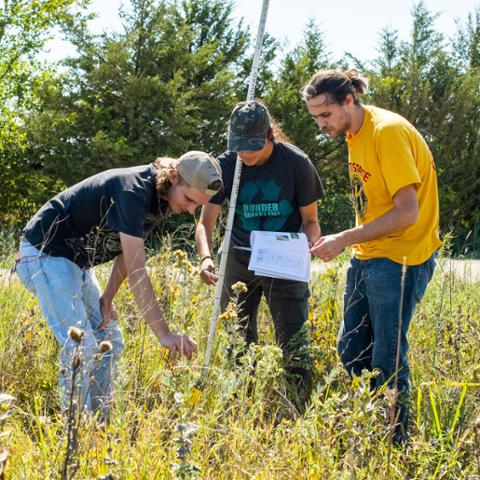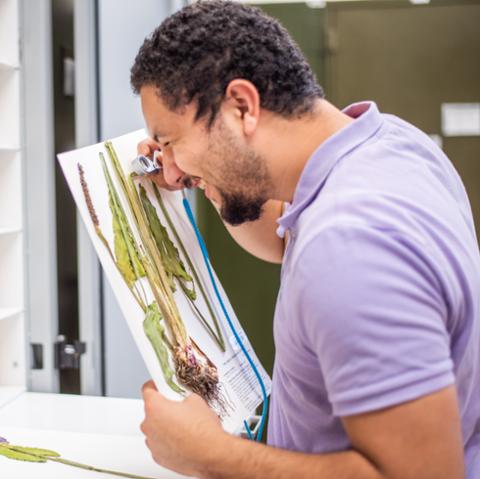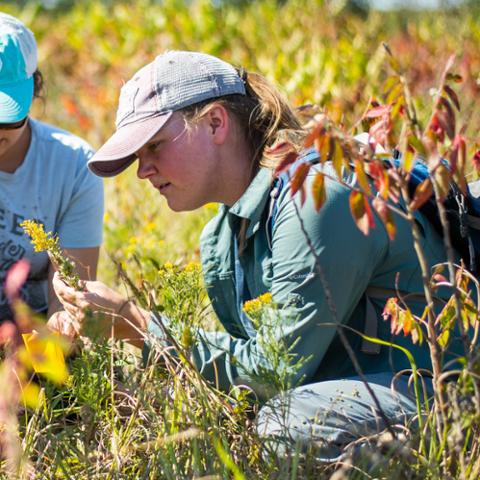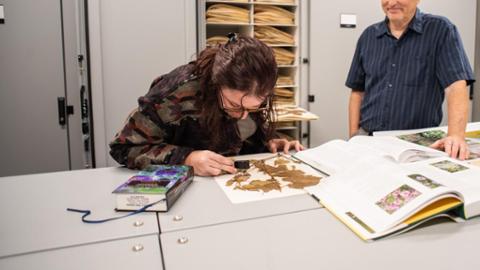Botany
Major in Biology with an Emphasis in BotanyExplore the incredible diversity of plant life on our planet.
From microscopic algae to towering trees, studying botany allows you to delve into the intricate mechanisms that drive plant growth, adaptation, and survival.
Through the botany emphasis track at Pitt State, contribute to scientific knowledge and make a positive impact on the environment.

Study plants in their natural habitats. Identify species, conduct ecosystem surveys, and collect vegetation samplings.

An extensive collection of 50,000 dried plants from 59 foreign countries.

Assist faculty in data collection that can become published research or win awards at conferences.
What is botany?
Botany is the study of plants. It is an interdisciplinary field that combines elements of biology, ecology, genetics, chemistry, and environmental science to understand the diverse world of plants.
The field of botany will equip students with the skills to:
- Survey ecosystems
- Collect and identify plant specimens
- Study plant anatomy and physiology
- Contribute to cutting-edge research in areas such as plant genetics, plant pathology, and plant ecology
- Develop strategies in conservation and land management

What is a botanist?
Botanists answer lots of questions when studying plants:
- How do plants grow and develop?
- What role do plants play in biodiversity?
- How do plants impact our physical environment?
Our botany students address major issues in the fields of agriculture, ecology, and horticulture.
Classroom topics in the Botany emphasis
- Plant Diversity: An exploration of the diverse world of flora.
- Wetland Plants: Focus on the unique and specialized plants found in wetland ecosystems.
- Identification of Woody Plants: Learning the skills and techniques for identifying trees and other woody vegetation.
- Grass Taxonomy: Delving into the classification and categorization of grass species.
Botany jobs found by Pittsburg State graduates
- Biotechnologist: Innovate biotechnological approaches to enhance agricultural practices and advance plant science.
- Horticulturalist: Cultivate and manage plants for optimal growth, aesthetics, and productivity.
- Environmental Consultant: Advise on and implement sustainable practices to address environmental challenges.
- Conservation Scientist: Research and implement strategies to preserve and protect ecosystems and biodiversity.
- Plant Geneticist: Study and manipulate plant genes to improve traits and develop resilient crops.
- Field Botanist: Conduct field research to observe and document plant species, habitats, and ecological interactions.
- Naturalist: Observe and interpret the natural world, emphasizing plants and their roles in ecosystems.
Graduates with a degree in botany have a variety of career options in research, conservation, agriculture, horticulture, and teaching.
A botany degree can be beneficial to students interested in the medical or pharmaceutical fields, as plants are a rich source of medicines.
Additional information
Biology - Botany Degree Map download
Catalog – see catalog for the School of Science and Mathematics